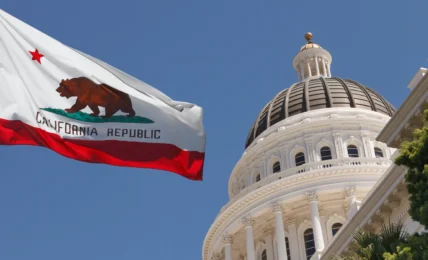The UK government released today its new Energy Security Strategy, outlining its plans to boost its long-term energy independence, while scaling clean and affordable energy. The strategy includes initiatives to accelerate the development of renewable energy and hydrogen, while setting a significant role for nuclear energy and also ramping near-term oil and gas production.
According to a statement by the government, the strategy comes in light of rising global energy prices, driven by increasing post-pandemic demand and the Russian invasion of Ukraine.
UK Business and Energy Secretary, Kwasi Kwarteng, said:
“We have seen record high gas prices around the world. We need to protect ourselves from price spikes in the future by accelerating our move towards cleaner, cheaper, home-grown energy.
“The simple truth is that the more cheap, clean power we generate within our borders, the less exposed we will be to eye watering fossil fuel prices set by global markets we can’t control.”
The strategy envisions a major acceleration in nuclear power, scaling the delivery of nuclear reactors to one per year, instead of one per decade. Calling nuclear a “safe, clean, and reliable source of power,” the plan sees nuclear covering up to 25% of the country’s electricity demand with an ambition to reach up to 24GW by 2050.
The strategy includes plans to significantly ramp the deployment of renewable energy, with offshore wind power to reach up to 50GW by 2030, including up to 5GW from floating offshore wind in deeper seas. As part of this initiative, the government plans to cut the red tape involved in developing offshore wind resources, reducing project approval times from 4 years to one year. Solar capacity in the country is expected to surge up to 5 times by 2035, from its current level of 14 GW.
The plan also includes doubling the current ambition for low carbon hydrogen production, now aiming for up to 10 GW by 2030, with at least half from green hydrogen.
While the strategy was described by the government as “central to weaning Britain off expensive fossil fuels,” it also includes plans for increased oil and gas production, with a new round of North Sea oil and gas projects to be launched later this year.
Commenting on the oil and gas aspects of the strategy, Derek Leith, Global Oil & Gas Tax Lead at EY said:
“No doubt the newly announced energy strategy will be controversial for some because as well as committing to investment in nuclear and increased investment in renewables it also sets out an ongoing commitment to the development of oil and gas resources. It is an unpalatable truth that fossil fuels remain in demand in the UK, especially for transportation and domestic heating. Fossil fuel production from the UK Continental Shelf is set to decline significantly over the remainder of the decade and that natural production decline is more aggressive than is required to meet the Paris Accord.”
The post UK Launches Energy Strategy with Major Clean Energy Acceleration, Along with More Oil & Gas Drilling appeared first on ESG Today.



